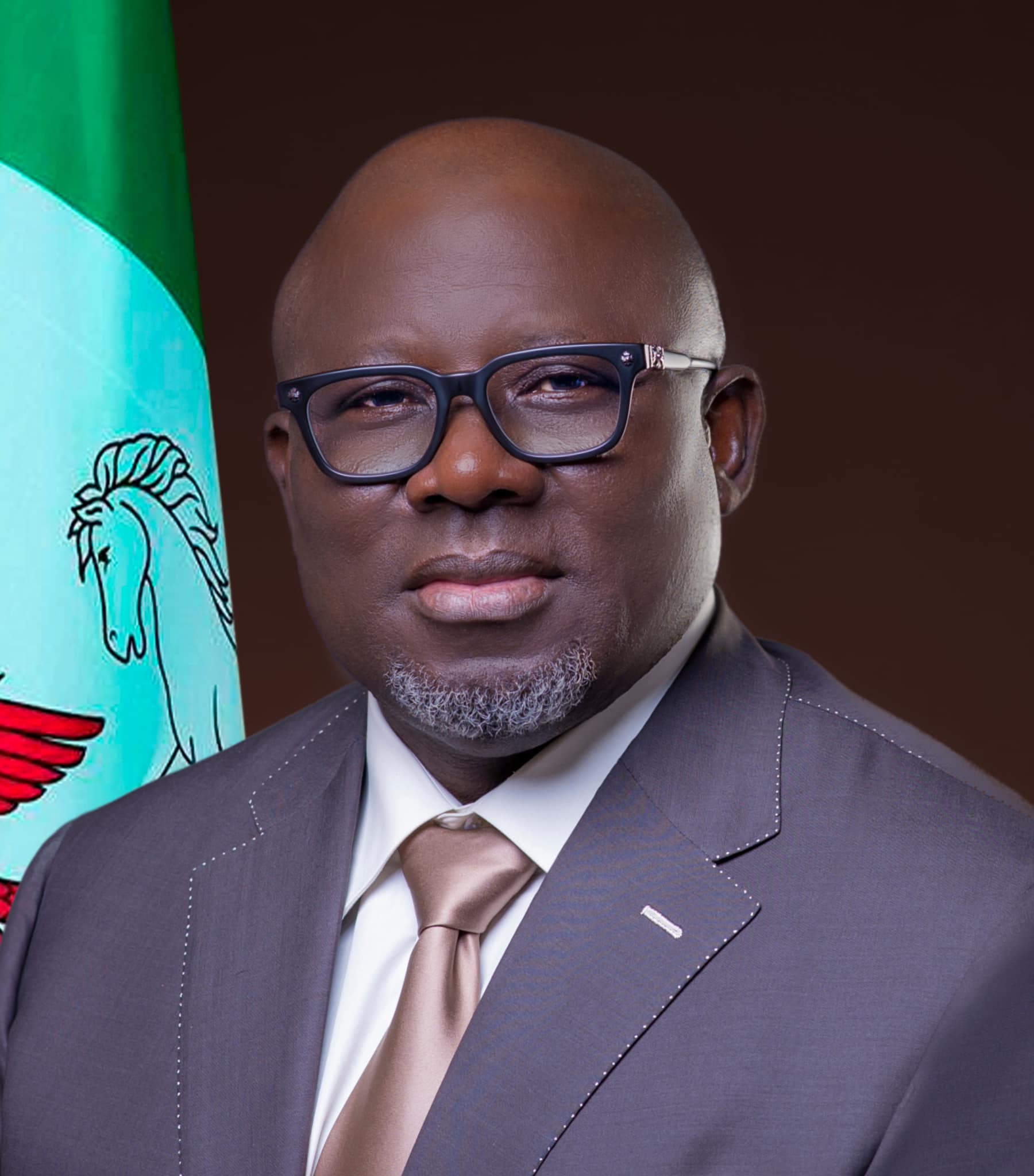BUSINESS
UNIDO, FG, Japan to Implement Project for Job Opportunities

The United Nations Industrial Development Organisation (UNIDO), the Federal Government of Nigeria and Japanese government have expressed commitment to implement a project to create job opportunities.
The project is also aimed at protecting the environment.
The Regional Director of UNIDO, Nigeria, Mr Jean Bakole said this at a Stakeholders’ Awareness on Circular Economy Practices for Plastic Value Chains project in Abuja yesterday
Bakole said that UNIDO would be providing necessary support to Nigeria to effectively implement multilateral environmental agreement, including adopting cleaner production policies and methodologies to create job opportunities.
He said that the effort would be achieved through the development and implementation of regulatory frameworks, strengthening national institutional capabilities for eco-balanced and promoting resources use efficiency and green industries in manufacturing production.
According to him, it is on that context that the project is being developed to promote sustainable management technologies, identify new business models and accelerate capacity-building process.
“The project also creates awareness-raising on sustainable plastic value chains through circular economy approach in Nigeria.
“At the same time, this circular economy approach will contribute to protecting the environment from hazardous wastes and will help to generate decent jobs,’’ he said.
Bakole said that the meeting was focused on development of guidelines on plastic wastes management policy under UNIDO`s Project on “Promoting sustainable plastic value chains through circular economy practices.”
He said that plastics waste continues to be a major environmental and social problem in many countries.
According to him, to manage the problem has become a major topic for innovators, policy makers, researchers, business owners and even specific sectors like the agricultural, marine and tourism sectors.
“Though plastics waste management is gradually beginning to gain prominence, the manufacturing and usage of new plastics is still at an exponential rate.’’
He also said that the project implementation model promotes cooperation between the federal and state governments including the FCT, and the organised private sector with the technical support of UNIDO.
“In response to the environmental challenges in Nigeria, UNIDO’s ongoing formulation of the Programme for Country Partnerships (PCP) is making provision to focus on environment management component.
“Through this component, UNIDO will provide necessary support to Nigeria to effectively implement the project,’’ he said.
The Ambassador Extraordinary and Plenipotentiary Permanent Representative to ECOWAS, Amb. Matsunaga Kazuyoshi, said the essence of the meeting was to discuss how to develop a guideline on the policy with various stakeholders.
Kazu Yoshi of the Embassy of Japan to Nigeria, said the partnership with UNIDO and Nigeria would strongly support in the implementation of the project, as it would create job opportunities in the country.
He said that the Japanese government was committed to collaborating with the Nigerian government and UNIDO, adding that the country had developed a recycling culture on how to manage waste effectively.
“The concern and challenges of Nigeria is our concern and our challenges as well, no single country or organisation can tackle the issue of waste management, accept when we work together.
“Therefore, it is important to have various stakeholders to work on this issue. So that this three years project which will be ending in 2025 can be effectively implemented to enable it achieve its goal,’’ he said.
The Project Manager of UNIDO, Ms Nishio Nahomi, said that the meeting would help the government to come up with a guideline that would support it in promoting waste management in the country.
Nahomi said that about 52.5 million dollars had been provided in the execution of the project, adding that the collaboration of various stakeholders would go a long way in the implementation of the project.
She called on stakeholders to support UNIDO, the Federal Government and Japan government in the execution of the project, adding that the effort would help to reduce waste pollution and create job opportunities in the country.
The Minister of Environment, Mr Mohammed Abdullahi said that plastic waste had become an integral part of the society due to its wide range of uses and economic benefits.
Abdullahi said that the volume of plastic waste being generated in the country presents circular economic business opportunities across the plastic value chain which should be properly harnessed for job creation.
He said that the government of japan funded a study on available sustainable alternative materials for plastic innovative packaging and recycling technologies that market needed in Africa to reduce plastic leakages to the environment.
He said the study showed a very low level of recycling activities in the country and only 45 per cent of wastes were collected. (NAN)
BUSINESS
DMO Takes Sensitisation on Borrowing Guidelines to Northern States

The Debt Management Office (DMO) said that its World Bank-assisted workshop on borrowing guidelines was designed to intimate subnational entities within Northern Nigeria on proper borrowing ethics.
The Director-General of the DMO, Patience Oniha, said this at the workshop on Borrowing Guidelines organised for top policy makers in Abuja on Tuesday.
He said that the workshop was under the aegis of States Action on Business Enabling Reforms (SABER).
He said it was important to align borrowing practices within the states with that of the Federal Government.
Oniha said that borrowing needed several layers of approvals and debt managers needed to understand why those approvals are required.
“Debt is such an important fiscal variable that involves several stakeholders, that is why we have a diverse group here.
“The objective is that after this workshop, your collaboration with your different states will be stronger.
“We need to keep empowering people with knowledge about creating skills so that work goes on smoothly.
“How do we make the process work? How do we make the subnational governments understand the process of borrowing so that they can raise the funds that they need for development?
“If they have not understood the process, they cannot comply and they cannot raise the funds,” she said.
Oniha said that the idea was to equip the states with all the skills and knowledge they needed, so that each time they want to borrow, they are ready and the process is smooth.
“Ultimately, the expectation is that the funds that they raise will be used for development in the state.”
She commended the World Bank for its interest in activities around public debt management in Nigeria.
“Debt is such an important fiscal variable that we cannot stop talking about it. We must get it right to make it sustainable.
“You can see what has happened to countries that have had to restructure their debts, the problems they went through; the downgrading by the international debt rating agencies; and their inability to borrow.
“Because debt is important, there are laws around borrowing. You want the borrowing process to be transparent, so it is not just one person that took the decision.
“The purpose has to be clear; the loan has to be properly documented; it should be monitored, it should be reported so that you can service it.
“When you do not service it, the consequences are not good. So, let us talk about debt sustainability. How will you know what to do? How will you know when to stop?” Oniha queried.
The Acting Head of Service, Federal Capital Territory (FCT), Nancy Nathan, described the workshop as an intersection of opportunity and responsibility.
Nathan said that the workshop was tied to equipping states and the FCT with the knowledge and tools necessary to navigate the complexity of the borrowing process
According to her, in a rapidly evolving economic landscape, access to finance is not just a necessity but a critical enabler for development.
“This workshop is aimed to demystify the borrowing process and clarify documentation requirements.
“It will empower our top policymakers to make informed decisions that will ultimately enhance our capacity to meet the financial needs of our respective states.
“As we embark on this journey of learning and collaboration, let us engage openly, share our insights, and push past limits that will drive our collective success,” Nathan said.
BUSINESS
Oborevwori Signs N1.729trn 2026 Budget, Three Other Bills into Law

From Francis Sadhere, Delta
Delta State Governor, Sheriff Oborevwori on Tuesday signed the 2026 Appropriation Bill of N1.729 trillion, tagged “Budget of Accelerating the MORE Agenda,” alongside three other key bills passed by the Delta State House of Assembly into law.
The assent paves the way for accelerated development, improved security and strengthened social welfare across the state.
The three additional laws are the Delta State Social Investment Programme Law, the Delta State Colleges of Education Law, 2025, and the Delta State Anti-Terrorism and Anti-Cultism (Amendment) Law, 2025.
Speaking during the signing ceremony, Governor Oborevwori described the 2026 budget as “not just a budget of figures, but a budget of vision, action and expected deliverables for the next twelve months,” assuring that the state would hit the ground running in 2026 to fast-track development across critical sectors.
The N1,729,881,208,779 budget represents an increase of over 70 per cent compared to the 2025 budget. The Governor said the estimate, though ambitious, was achievable, noting that 70 per cent of the budget is allocated to capital expenditure, while 30 per cent is for recurrent spending. According to him, the spending plan reflects his administration’s commitment to infrastructure-led growth and sustainable development.
Oborevwori said that in 2025, the state intensified investments in infrastructure, security, fiscal discipline and revenue generation, resulting in improved internally generated revenue without placing additional burdens on citizens. He noted that these gains underscore the success of the administration’s reforms and its resolve to further strengthen the state’s economy.
Explaining the significance of the accompanying laws, the Governor said the Social Investment Programme Law provides a legal framework for equitable, grassroots-focused access to resources and services, especially for vulnerable and underserved populations, without discrimination.
He added that the Colleges of Education Law, 2025, standardised the operations of state-owned colleges of education, enabled them to award Nigerian Certificate in Education (NCE) and education degrees concurrently, and expanded their capacity to train more qualified teachers.
On security, Oborevwori said the Anti-Terrorism and Anti-Cultism (Amendment) Law strengthens the legal framework to tackle terrorism, cultism and related crimes, bringing state laws in line with contemporary security realities.
The Governor commended the Speaker, leadership and members of the Delta State House of Assembly, as well as the Clerk and staff of the House, for the timely passage of the budget and other bills, noting the strong synergy between the executive and legislature. He also thanked stakeholders, cabinet members, civil servants and citizens for their contributions, while wishing Deltans a Merry Christmas and a prosperous New Year.
Earlier, Speaker of the Delta State House of Assembly, Rt. Hon. Emomotimi Guwor, said the passage of the four bills followed rigorous legislative engagement, wide consultations and thorough scrutiny in line with the Assembly’s constitutional responsibilities.
Guwor explained that the Social Investment Programme Law institutionalized social intervention initiatives aimed at protecting vulnerable citizens and promoting inclusive growth and social justice. He said the Colleges of Education Law, 2025, establishes a uniform framework to enhance the quality and efficiency of teacher education and reduce disparities among state-owned colleges.
He added that the Anti-Terrorism and Anti-Cultism (Amendment) Law addresses emerging security challenges and corrects gaps in the principal legislation, including the absence of a clear definition of cultism.
On the 2026 Appropriation Law, the Speaker said the House scrutinised the budget sector-by-sector in line with the MORE Agenda before passing the N1.729 trillion estimate.
According to him, the assent to the bills further highlights the cordial and productive relationship between the legislature and the executive, driven by a shared vision for a peaceful, secure and prosperous Delta State, and will significantly advance good governance and socio-economic development in the state.
Oil & Gas
NCDMB Oil, Gas Parks Near Completion, Set for 2026 Inauguration

The Nigerian Content Development and Monitoring Board said its Nigerian Oil and Gas Parks Scheme, established to boost local manufacturing through shared infrastructure and embedded power solutions, would be inaugurated in 2026.
Abdulmalik Halilu, spokesman for NCDMB, disclosed this on Monday in Abuja while presenting an overview of the Board’s mandate and achievements at a capacity-building workshop for the media.
NCDMB established the NOGAPS with the primary aim of domiciling and domesticating oil and gas activities in-country by facilitating local manufacturing.
The scheme is a key part of the NCDMB’s 10-year Strategic Roadmap to increase Nigerian content in the industry to 70 per cent by 2027.
Halilu said eight oil and gas industrial parks, covering Bayelsa, Cross River, Akwa Ibom, Imo, Delta, Ondo, Abia, and Edo, were being established.
“NOGAPS in Bayelsa and Cross River states are at 90 per cent completion and due for commissioning in 2026,’’ he said
Mr Halilu said the parks would provide infrastructure and services plots for manufacturing outfits, adding that its local content policy had evolved into a powerful tool for industrialisation, job creation and sustainable economic growth in the sector.
He said local content was designed to stop capital flight and reposition the oil and gas industry as a catalyst for national development.
According to him, exporting oil and gas services outside Nigeria amounted to exporting jobs, capital and industrialisation opportunities, a situation the Federal Government deliberately moved to reverse through local content policies.
He said the success of early local content initiatives led to the enactment of the Nigerian Oil and Gas Industry Content Development Act, which institutionalised the policy and insulated it from political changes.
“The philosophy of local content is simple: what can be competitively produced in Nigeria should be produced in Nigeria, without compromising standards, pricing or project timelines,” Halilu said.
He explained that the NOGICD Act assigns NCDMB two core responsibilities, namely building indigenous capacity and enforcing compliance with the Act, which contains schedules and nearly 300 performance targets.
Highlighting achievements, he cited the Nigeria LNG Train 7 project as a major success story, with over 93 per cent Nigerian workforce participation, engagement of 1,400 vendors, and significant domiciliation of fabrication, engineering and manufacturing activities.
He said capacities developed for oil and gas projects now serve other sectors such as power and construction, reinforcing the sector’s multiplier effect on the economy.
On financing, he said NCDMB had deployed funds from the Nigerian Content Development Fund through intervention programmes, including single-digit interest loans for indigenous companies, asset-acquisition financing, and working capital support introduced during the COVID-19 pandemic.
Halilu also said that NCDMB had fully automated its processes, eliminating physical visits for certifications and approvals, and placing the Board among Nigeria’s top-performing agencies in ease-of-doing-business rankings.




















